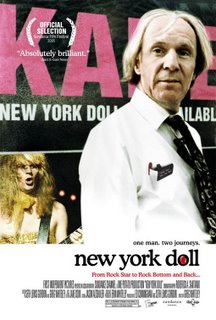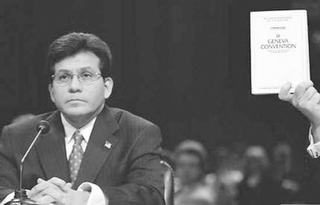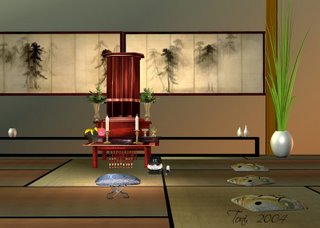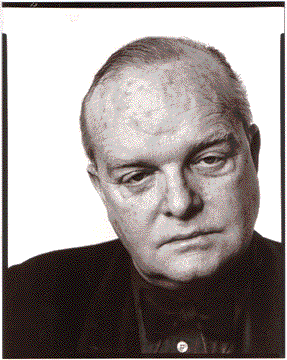
 Rev. Hye Wol Sunim was first ordained in Sri Lanka in 1977 and took robes in the Korean Zen tradition in 1984. Rev Sunim studied with Buddhist masters in Sri Lanka, Thailand , China, Australia, Taiwan, Korea, and Japan . He arrived in the US in 1991 and is currently creating a Meditation Center in Acton, California. He translates Pali text and teaches the early Pali canon.
Rev. Hye Wol Sunim was first ordained in Sri Lanka in 1977 and took robes in the Korean Zen tradition in 1984. Rev Sunim studied with Buddhist masters in Sri Lanka, Thailand , China, Australia, Taiwan, Korea, and Japan . He arrived in the US in 1991 and is currently creating a Meditation Center in Acton, California. He translates Pali text and teaches the early Pali canon.Over the course of the last year, I have had the fortune to have several meetings with Rev. Hye Wol Sunim, who just likes to be called Sunim. I have noted his recent presence in Nashville in several recent blog entries. To recap, I first heard him speak when he represented the Nashville Zen Center at the (then-) annual Buddhist Fair here as a guest speaker. More recently, he has been in town for over two weeks as the guest of one of our NZC members, and I have attended several "sits" with him and have had the opportunity to speak to him alone or in small groups on several occasions. What has emerged is an impression of a remarkable man who has lived a life steeped in Buddhism, to an extent most of us could not imagine. His dedication is more than inspiring, but it has taken me a while and a few conversations to figure out what his life and teaching really is, and it is inspiring, if not something any of us could hope to duplicate.
My understanding from reading what I can find on the web is that Sunim has received transmission in two traditions, some kind of Korean Zen (I am fairly ignorant about the different schools, although I know the NZC rituals are based on one of them, which I think is Kwam Um) and Vipassana (a Theravada tradition which is most familiar to some of us through insight meditation). The blend of these traditions is not that unusual or incompatible; the meditation practices of Zen and Vipassana are more similar than those of any other two Buddhist traditions I have encountered. In fact, an offshoot group of the NZC (which I believe is called One Dharma and meets elsewhere here in town) is, I think, based on this same blend. What makes Sunim's teaching and work more remarkable to me is my discovery in my latest conversation with him that he is not so much trying to blend two traditions as to go beneath and behind the traditions to study and teach the original teachings of the Buddha. To the extent that he does this, his teaching is both outside of either tradition and the start of its own.
I am relatively certain that Sunim's method is not unique. After all, he is a Pali scholar and a Buddhist scholar, a man who has the ability to go back and look at the Sutras on which all schools of Buddhism are allegedly based, in the purest form in which they can be ascertained. My understanding from my conversations with him is that he certainly respects the traditions of the schools of Buddhism for what they are, but he thinks that the teachings of the Buddha are beyond all these traditions; that the traditions are merely the stepping-off point, the discipline which begins the road to final realization. He has had the ability to go back and read the sutras in their earliest extant forms and from those derive what he believes to be the true teachings. My own Pali being weak (i.e. nonexistent), I am unable to verify or quarrel with any of his opinions on this, of course. I do admire the devotion and purity of this approach.
Even I know there are problems endemic to trying to ascertain the teachings and intentions fo the Buddha Gautama from these texts. First, he lived to be 80 (reputedly dying of bad pork, by the way) and taught for 50 years. His teachings, which comprise the sutras, are as numerous as the sands of the Ganges. Pretty much all of the schools of Buddhism have seized on one of these sutras as the "highest" teaching of the Buddha, relegating all of the others to "provisional" teachings intended for those of limited understanding. Some schools, like the Nichiren schools have extrapolated beyond the sutras themselves; Nichiren contended that the title of the Lotus Sutra (Myoho Renge Kyo) was itself the highest teaching. Zen contends that the truest teaching of the Buddha occurred outside of the sutras, a wordless transmission from master to disciple embodied in the passing of a flower to Mahakasyapa.
Then again, there is the problem of preserving texts. Even when we get to the oldest texts we can find, how do we know they are accurate? How do we know which were authentic teachings of the Buddha and which were not? Even with my limited knowledge of the subject, I know that Buddhist scholars admit that many sutras could not have been written in the lifetime of the Buddha. The same problem exists in most or all religions. Modern Christianity really cannot be said to have existed before the Council of Nicea in 453 A.D.; before that, Christianity consisted of multiple inconsistent sects, some of which taught doctrines which were absolutely refuted by the Council, and some of whose doctrines differed from the teachings which came to be accepted and embodied in the Bible by minsicule degrees about which only a scholar or a fanatic could care. The political motivations of those who chose what came to be orthodox doctrine can be (and is) debated ab nauseum, but are way beyond the scope of this blog entry. Christians really should read the Aprocrypha to understand more about the choices that were made in ascertaining the "true Word of God," and by whom.
Of course I realize, as I prepare to leave later today for Atlanta for sesshin and for my initiation on Sunday, that Soto Zen is something that evolved after the time of the Buddha; Chan Buddhism originated in China, became something different in Japan, and has become a new animal in the United States, whether it wants to admit it or not. Nonetheless, I am drawn to it as the school and discipline which works best for me. I also see a clear differentiation between Sunim's life work and the teaches and practices of those who want to combine traditions. Like Brad Warner, I find it amusing when an American teacher claims to have mastered three or four traditions, all of which their true adherents devote their lifetimes to and rarely claim to have mastered, by the age of thirty or forty. The martial arts are analagous. Sunim is different, and impressive thereby; he is not combining Zen and Vipassana, but rather going behind them to determine what the original teachings were, to the best of his ability, and his ability is more than mine will ever be. I am 48 years old. I will almost certainly never learn to read Pali. I will most definitely never sit is week-long, 24/7 sleepless sesshin. Sunim has done both of these, although he now thinks that the later is not useful, a counterproductive form of asceticism.
All of the above (my understanding of Sunim's work) came as a result of my question to him about the importance of posture in zazen. Soto teachers that posture is paramount, which comports with my own experience; I had noticed that in the lesson he had just given for some rank beginners, he made no attempt to correct their really lousy posture. Bad posture in zazen is rampant in the NZC, and is almost certainly a result of the fact that most of the newer members have learned to sit without correction and without teachers. My posture is not the best, but it gets worked on every time I go to Atlanta. Sunim says that the posture is the means to an end; a lot of Soto people would say that the posture is in itself both the means and the end. In typical enigmatic Zen fashion, from my own limited experience, I would say that both are true.
One thing I am sure of is that all of us who are students need teachers; not cult leaders, not masters, just someone to give us feedback on our progress. Coaches, if you will. It's a life thing; you can't see yourself from the outside. Yes, you need to rely on yourself and what you learn for yourself, ultimately. If your teacher's teachings begin to contradict your own experience, you must go with the truth you perceive, and reject those teachings and perhaps ultimately that teacher. Yet is is assinine to continue to reinvent the wheel. It is very good to have help along the way. Soto Zen provides that for me at this time, but it is more than helpful, it is deepening, to meet other teachers along the way. For this, I will always be grateful to Sunim. He will have his own followers; I believe he has blessed my pathless path, and whatever it is worth, I would similarly bless his.
Now stop reading and thinking about this and go sit.











